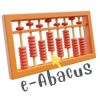Writing exams is stressful. You got limited time with many questions to answer. Some you know well, some you can attempt well, and some you may not know answers to. Even if you are well prepared for your exam, your question paper may leave you in a difficult situation to attempt all questions within time and quality. Effective time management is the key skill which can help you in this situation.
Children generally struggle to find time for revising their answers, and land in a tensed situation even after attempting to all the questions. Time management is the biggest challenge most students face throughout their academics.
So the question comes is what to do to handle this situation? Effective time management during tests or exams is the answer. But now, the difficult question comes – How to manage time effectively during the examination?
This is something which doesn’t comes overnight, but needs practice like any other skill. Parents need to teach their children importance of time management, not only by instructing them, but helping them out in their daily schedules. This can make children value time and practice time management throughout their chores.
In parlance of how to manage time during examinations, here are a few quick tips which you can help your child practice and master this skill progressively.
1. Analyse the question paper : Spare 2 to 3 minutes to analyse the question paper. You skim through the questions quickly yet carefully to understand the questions. The intent is to make yourself familiar with the structure of questions, and have an understanding of what all you need to cover through this time. The key in this step to read the questions carefully and thoroughly and understand the questions well, specially the confusing ones.
2. Prioritize: Spend next 2 minutes to prioritize. Prioritize in three buckets-
a. Questions I am confident to answer
b. Questions I can attempt with some effort
c. Questions I do not know answers fully to and may take time answering
You can create your own signs to mark the questions in the buckets while you read them. For example, have a code say “1” marked for questions you are confident with, code “2” marked for the questions you can attempt with some effort, and code “3” marked for the questions you need time answering. Refer to questions marked “1” to answer first without wasting time in finding questions. Even a few minutes saved are a few marks earned!
3. Strategize : The first bucket you definitely need to answer first. Strategise the second bucket in terms of marks the questions carry. You would want to attempt the questions which carry higher marks first. Divide your time accordingly.
The key in this step is not to spend too much time, and have an idea of how much time you would need to keep spare for a quick revision. To make the kids practice this, parents can randomly select questions from their books and give them 5 minutes time to analyse, prioritize and strategize. This is to be done regularly much before exam dates so that the kids understand they need to finish this activity quickly.
4. Track time : Keep a watch in front of you to keep yourself aware about the time you have consumed. You would like to increase or decrease your time consumption in the questions as per the questions worth and the questions remaining. Keep an idea of the time left. Do not feel nervous if you may take a little time for a problem, but think through managing it better in next questions.
5. Have a quick revision : When you are exactly left with the budgeted time for revision, start revising. You must go through and reconcile the questions and answer numbers. Ensure you have attempted all questions, so quickly zip across important answers and check correctness. For example, the mathematical formulas, or antonyms and synonyms or word meanings etc.
Ensure you go through your answer sheet. Make sure it is properly knit or stapled, it bears your name, grade, section, school name, roll number, test centre code or any other specifications required.
6. Do not rush or try to finish and leave early: Your exams are the reflection of what you studied the whole year. Examinations are giving you an opportunity to look inside your own preparedness of the subject. It is not for the sake of just passing the grade, but making a way through for your future. So do not be in haste to complete and move out of the test centre. If you have genuinely finished the question paper early, spend the rest of the time in revising your answers.
With these few quick tips, children can ensure they are doing well in their examinations; and they are at least not disturbed by the time constraints. As I said, this is a skill and matures with practice – the more the you groom yourself, the more it grooms you. What parents need is to assist their children throughout their studies to master such life skills.
If you think your child is going through exam stress, you should not worry but take a step by step approach to take that stress out of your kids mind. You can go through this article to know more about the ways of handling exam stress.
Let me know in comments if you think of any other innovative time management ways other parents can practice.











